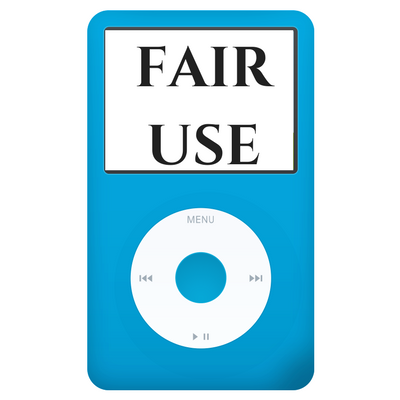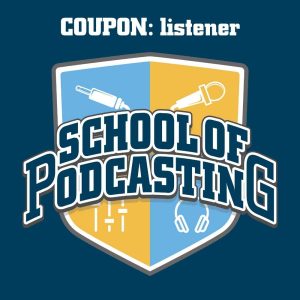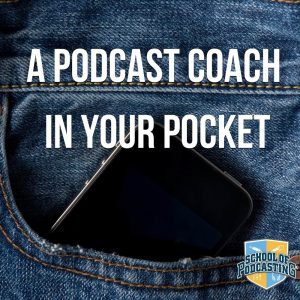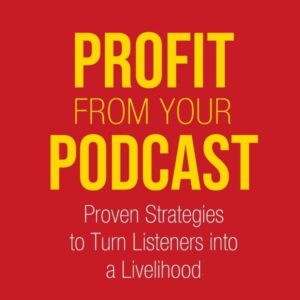
OK, We're talking legal today so let me put out this disclaimer that I'm not a lawyer, and even the site I'm referring to (which is done by a lawyer) says to contact a lawyer.
http://wiki.creativecommons.org/Podcasting_Legal_Guide
A “fair use” is copying any protected material (texts, sounds, images, etc.) for a limited and “transformative” purpose, like criticizing, commenting, parodying, news reporting, teaching the copyrighted work. Under the US copyright laws, fair use “is not an infringement of copyright.” Judges typically consider four factors that are set forth in the Copyright Act. These factors are non-exclusive, so judges are permitted to consider other facts in addition to these. However, in the vast majority of cases, courts limit their analysis to these factors (you can read more detail about these factors at http://fairuse.stanford.edu/Copyright_and_Fair_Use_Overview/chapter9/9-b.html. The Brennan Center's excellent public policy report entitled “Will Fair Use Survive?: Free Expression in the Age of Copyright Control” provides an analysis of how fair use has played out in numerous scenarios over recent years: http://www.fepproject.org/policyreports/WillFairUseSurvive.pdf):
- the purpose and character of your use (this is sometimes called the “transformative factor”);
- the nature of the copyrighted work (e.g., is the work highly creative fiction warranting broader protection, or is it highly factual warranting narrower protection?);
- the amount and substantiality of the portion taken, (as compared both to the underlying work and the work in which the copying is used); and
- the effect of the use upon the potential market (e.g., did the copyrighted work lose market share or potential market share?).
In addition, some commentators refer to a “fifth fair use factor” which hinges on good faith — whether your conduct might be considered “morally offensive,” Judges and juries are human, and their decisions can be swayed by whether they think you are a “good or bad” actor (see http://bgbg.blogspot.com/2005/10/search-or-seizure.html).
Two Misconceptions About Fair Use.
(a) Acknowledgment Is Not Enough. Some authors have the erroneous belief that an acknowledgment will immunize a copyright infringement as “fair use.” This is a myth. Including an acknowledgment may be considered in analyzing the four statutory factors, but it is by no means is a clear defense to a claim of infringement.
(b) Disclaimers Are Not Enough Either. Another point of confusion is whether an upfront disclaimer that denies any association between the podcast and the copyrighted material can protect the podcaster from liability. For example, assume your podcast is a parody of “The OC” television show. You include a disclaimer at the beginning of your podcast in which you state: “This podcast is not associated with or endorsed by Fox Television.” This sort of disclaimer will not, by itself, protect you from a claim of copyright infringement, or act as a clear defense to such a claim. It will, however, be considered among the factors the court considers, and in a very close case, a court may look positively on a clear statement of disassociation. (Note, however, that including a clear disclaimer can help with potential trademark infringement situations. See section 1.4 – “Trademark Issues” — for further information about trademark law.)
Examples Of Fair Use That May Apply In Podcasting.
To help illustrate the way these factors may play out in the podcasting context, it may help to consider a few examples:
- Example 1: A book group organized by a high school teacher podcasts its meeting discussing J.D. Salinger's Catcher In The Rye. The members discuss the book, read short portions of it aloud, and criticize and comment on the author's style, the storylines, and the like. The podcast is posted on the book group's blog site, which is hosted by the high school. The site includes no advertising and generates no revenue. Conclusion: This would likely be a fair use.
- Example 2: A podcaster uses the copyrighted music of pianist George Winston for the intros and outros of her podcast that is about yoga and meditation. The podcast has nothing to do with commenting or critiquing the music played. Conclusion: This is likely not a fair use.
- Example 3: A 10-minute podcast includes a group of music fans discussing a recent copyrighted article in Rolling Stone magazine about a new band. One fan reads 4 paragraphs of the 6-paragraph article and comments on its analysis of the band. Another fan plays a 1-minute segment of the band's copyrighted song, which is 2 minutes in length. The fan then discusses the music as it compares to other music in the genre. The fans post the podcast on a fan website where advertising is sold, and the fans receive revenue for their podcast. Conclusion: This commentary/criticism by the fans in response to the article and song suggests a “fair use”, but the commercial/profit aspect of the site where the podcast is being distributed raises concern, as does the amount of the article and song taken in comparison to their overall length. Any negative effect on Rolling Stone magazine's market or the band's market for its music could cut against the fair use argument, though the podcasters might argue that the podcast promotes the Rolling Stone magazine article and band's song and that it is not a replacement for either (of course, this would likely be costly and difficult to prove in a trial setting). Given the flexible application of the fair use doctrine, and that the burden lies on the podcaster to prove fair use, podcasters in this situation could be found to infringe.
by David Oxenford
Beware – Music Use in Podcasts, Downloads and On-Demand Streams are Not Covered By Your SoundExchange Royalties
Broadcasters beware – podcasts with music may be dangerous to your economic health. In recent weeks, I've come upon more than one incident where a broadcaster was providing podcasts containing music on their website, or allowing listeners to download or stream on-demand some new, hot song. I've even seen certain articles in the trade press advocating that stations do podcasts of their morning shows, or otherwise provide some sort of programming containing music on their websites in a manner in which the listener can listen over and over again to the same program or song. Broadcasters need to know that they are asking for trouble when they provide services like podcasts, downloads and on-demand streams containing music without getting specific permission from copyright holders to do so, as these uses are not covered by the SoundExchange royalties paid for webcasting, nor (in most cases) by your ASCAP, BMI and SESAC royalties.
The royalties paid to SoundExchange are for the right to publicly perform sound recordings in a noninteractive manner. In other words, they only cover streams where the user cannot get a specific song when they want it, and where listeners do not know the order in which songs will be played. ASCAP, BMI and SESAC (the “PROs”) also cover public performances, but of the underlying musical compositions (the words and music of the song, as opposed to its recording by a particular singer or band). By contrast, “podcasts,” ( and here I mean an on-demand program that can be downloaded onto a digital device for later replay, and which can also usually be played immediately on someone’s computer) are much like downloads – and involve a different right in music – the right to reproduce and distribute the music. The rights of reproduction and distribution are different from the public performance right, and the permission to make reproductions and distributions are granted by different groups than are the public performance right. SoundExchange and the PROs have nothing to do with granting this reproduction and distribution right (with the limited exception of ephemeral rights in streaming granted through the SoundExchange royalty – a concept too technical to be discussed here, and one that does not affect this warning. But, if you are interested in these rights, you can see our article that discussed ephemeral rights in a bit more detail, here). Podcasts, downloads and on-demand streams require a specific grant of rights from the copyright holders of the sound recordings and the musical compositions for each piece of music that is being used.
Rights to the sound recording of most popular recorded music will typically come from the record label. And, for these sorts of on-demand uses, the rights to most recorded music will not be cheap and easy to obtain. It will come easily only for specific songs that the labels want to promote – sometimes referred to as “podcast safe” music. This music is usually a song from a new artist, or an alternate take of a new song by an established artist, meant to be used to promote a new release. Getting rights to the full catalog of music typically played by a music intensive radio station will require a negotiation with each record label and the payment of significant money – the kind of negotiation that has delayed the introduction of services like Spotify in the US for so long.
Rights to reproduction and distribution of the musical composition typically come from the music publishing company (or sometimes music publishing companies where there is more than one writer of a song). These licenses—known as “mechanical licenses”— can be obtained through a statutory license, setting out payments to the copyright holders of any musical work that has been publicly released, but only if some strict procedures set out by law are followed. These rights can also be obtained directly from the publishers or songwriters or, in many instances, through the Harry Fox Agency, which licenses compositions on behalf of many copyright holders. There are also a number of private companies that will help in getting the necessary licenses to use the musical composition. Depending on the use that you have in mind, the record companies may themselves have already cleared the right to the musical composition, and that right will come with the right to the sound recording when you negotiate for that right. But needless to say, it is not an easy process that will allow routine podcasts or downloads of music programming.
Even the podcast of the performance of a local artist, with his permission, may require a mechanical license from the songwriter or music publisher if the artist has been singing “cover” songs. So be careful when recording local artists – you may think that you are getting their music royalty free, and you may be avoiding the sound recording royalty and a negotiation with a record label, but you may still have the musical composition to deal with if the local performer has not written their own songs.
There are lots of other caveats and exceptions that may apply in certain circumstances. But these don't allow the routine podcast of music programs or the other types of uses described above. So be careful – or you may have the music industry knocking at your door demanding an unexpected payment. For more information about these topics, check out our Advisory on the Basics of Music Licensing in Digital Media.
Podsafe Music Resources
Instead of trying to play Lady Gaga, there is other music that has already been cleared. You can find it at sites such as www.musicalley.com (now out of business) or www.magnatune.com
This 14-minute podcast was created and published in one hour and two minutes.
Quick Summary
If you don't have permission from the Songwriter
If you don't have permission from the Song performer
If you don't have permission from the record label.
You can't LEGALLY play it (but people still do).
To try to do it Legally, see this interview with Brian Ibbot of Coverville.
please do not use the chat window to ask me about this topic. I love you all, but everything you need is in this article and I'm tired of saying “No, it's not legal.”
Comments are closed.





great post! Very helpful. What about something like a news story. There’s a 5 minute piece on NPR, and I’d like to include some clips from it on my podcast, on which I will comment. The total time of the clips would probably be around 1 minute, but no more than 2 minutes. According to what this post says, it seems like that i can use it no problem… but what if I have a sponsor and get income from my podcast? (I don’t actually have sponsorship yet, but I will soon). You touched upon that a little, but the situation was a bit different, and I just want to be sure. Many thanks!
Howdy.
I am all-types of confused, on where I fit. I AM a podcaster- but this is a passion (not a job). I play music in the background, to drown out my lameness..
If you listen to the beginning of my podcast, you’ll hear how “in-depth” I get about the artist..
Okay; here is my question:
If this is my format AKA I’m not getting paid for promoting bands (I enjoy)- do I have to get their permission? It’s just one less step- if I don’t..
Oh, I hope this made sense:)
Thank you for your help!!
Krissy
If you are using major record label music in any capacity, you need their permission. You need the person who wrote the song, the person who performed the song (they are not always the same person) and the person who owns the rights to the music (record label). -Dave
“If you are using major record label music in any capacity, you need their permission.”
Ok. You had me all the way up to this comment. Doesn’t that negate everything about “fair use”? You have to get a major label’s permission to play samples of the product they are selling in order to. critique or comment on it? Perhaps I misunderstood something.
Mike,
True. Fair Use is a slippery slope. In the event you get sued, if you defense is “Fair use” you still have to fight in court ($$) to prove it. I once worked for a company that got sued. We won our case (because we were the good guys). The bad news is it took $25,000,000 to win. So if I play your whole song, and then go “I like it. It had a good beat” is that fair use? We had a great discussion on Legal and podcasting at http://podcastersroundtable.com/pr038-podcasting-and-the-law/ – Dave
Hi great site. I am starting a podcast about rock and roll and mainly Elvis who didn’t create, but brought it to the masses. The Podcast name is ( From a Dream to Graceland) there will be no copyrighted music played on it, by the way music alley.com does not open, but if I discuss a certain book or article on my podcast to just to discuss it whether I think it is a correct portrayal or not does mentioning the publication put me in danger of copy infringement from you know. Now the site will be a promotion of Elvis Rock and Roll of course there will be questions from listeners but that is all. I don’t think I will be in copyright infringement, but I just wonder if a publication such as a book, a magazine whatever can give me a ceast and desist. Any music that will be played will be an intro and outro that I will play and have written myself. Thanks, David
Musicalley.com is dead (bummer) I guess if you were reading a book and they felt you gave too much away, they could create a cease and desist. One might say its better to beg for forgiveness than as for permission, but then again, I’m not a lawyer, and I would recommend you consult with one (I have to say that).
Hi there,
I have a dramatic, scripted podcast where a character sings a couple lines of a well-known 1960s pop song in a scene. The podcast is free to download and currently has no ads or sponsors. Do I need official permission for this? Thanks!
Justin,
You can expect this from any consultant or coach, you need to ask a lawyer. There is a lot of “Depends” in that situation.
Hi 🙂
Great site.
I interviewed an artist (guitarist) on my free (non profitable) podcast and am looking to play 30 sec clips of songs (3-4 in total – mostly major label songs) in between segments of the interview.
Is this considered fair use?
Thanks
Mark
Mark,
I’m not a lawyer. Pretty much any use of major label music is not legal. You need permission from the songwriter, the performer, and the rights holder (the label). See http://thepodcastersstudio.com/tps-ep-38-podcasting-and-the-law-an-interview-with-entertainment-attorney-gordon-firemark/
good day! i have plans to produce medical podcasts in Ghana and i plan to use popular songs as intro so as to keep people’s attention. do you think this is fair use?
Quick answer. No If you don’t have permission from the author of the music, the performer of the music, and the rights holder, its probably not fair use, but I’m not a lawyer,. See http://podcastersroundtable.com/pr038-podcasting-and-the-law/
At this point, I am not making any money on my podcast. I would like to talk about Mindfulness on my first episode. There is an author who wrote a book on the neuroscience of Mindfulness and I would like to share some of his points which may require me to read verbatim from his book. Is that permissible? I would say who he is and the title of the book.
Martina,
I’ve done this. Is it legal? I’m not a lawyer. Be sure to have a link for people to buy the book. There will always be a gray area.
Hi! About all the different rights to music, and keeping track of these, there is a service that offers a solution that I wish everyone knew about;
I really really recommend for anyone doing podcasts or other public productions to have a look at the library Epidemic Sound http://www.epidemicsound.com. I’ve worked with them before, they have been creating music for broadcasters for years. They have super talented music producers/composers working directly with them, and so they buy the music directly from the composers – meaning ALL the rights to the music are included and part of what you get – including the public performance fees. You don’t need to pay anything beyond the (honestly super fair) price for their music. http://www.epidemicsound.com/faq/licensing/
If you use music frequently I’m sure you can get a blanket deal if you just talk to them, they are super talented and helpful.
Does this also include downloads? Royalty free music isn’t really anything new.
The right to download (= distribute) are the Mechanical rights if I’m not mistaken? And these are also included. As I see it, the term “royalty free” includes such different things on different libraries.
Epidemic Sound for example owns (& include) ALL the rights to the music; Master, synch, mech rights, and public performance etc. (meaning collecting societies are not actually collecting on their music). I come from broadcasting, and this is why we’ve used them alot.
Dave,
Let’s say you’re doing a narrative podcast and the story brings to mind a movie, such as Office Space. So you want to play a two second recording of the TPS Report bit, or “Did you get the memo” and credit it to the movie.
Allowed?
Tim, Allowed? No, Do people do it? All the time. Legal? probably not. Remember “Fair use” is a defen$e you use in court.
Hi Dave,
Thanks for all the answers here. I have a feeling I know the answer to this question, but thought I’d ask anyway. What if I’m doing a podcast about karaoke? Are the composition rights of songs protected, even if they are sung by someone else? Does it matter if this podcast is available free with no sponsorship, or if it is heard on a (non-profit, community) radio station?
Eric
What about using the audio from a newscast to talk about a news worthy subject?
Realize anytime you use the “Fair use” that is a Legal Defense. If you feel safe, and your lawyer (not some guy on the Internet – meaning me ) says it’s ok, then go fir it. -Dave
Thank you for this. It serves to clarify the muddy waters a bit.
I’ve been researching what I’d need to do to have a music review podcast. From your article, my conclusion is try to abide by Fair Use, document publicly the policies by which I attempt to abide by Fair Use rules, contact and get permission from major labels being very clear with them what will be done.
Josh, as always I’m not a Lawyer so you may want to consult someone like Gordon Firemark at firemark.com or see http://www.davidjackson.org/legal
My husband used to be on the radio doing a straight ahead jazz program. Now he’d like to do a weekly podcast playing and discussing jazz. Can he play cd cuts on a podcast? How could he do this without being a radio station paying all of the royalties?
Thanks
L
Laura, first of all.. I’m not a lawyer. The quick answer is you almost can’t play it legally. you need the approval of the songwriter, song performer, and mechanical rights holder. See http://www.davidjackson.org/legal
My students at an elementary school make a weekly podcast about what’s going on at the school, strictly school news. We use background music, usually just the jingles from GarageBand. One week a student pulled a song (major record label) from my iTunes account to use as background music. We didn’t mention the song at all, we don’t make a profit. Is this allowable or not?
Nope. See http://www.davidjackson.org/legal (so its not legal, so is jay walking)
So if I am creating a automotive podcast, and then in between different topics I play part of a commercial song (not the full song) to pretty much fill in for periodic breaks, but i intend on putting a written discription of the podcast and music included with a link of where and how to obtain the music played is that ok or do I still need a license.
I enjoyed this article; I found it very helpful without talking over my head. In particular I appreciated the discussion about Mechanical Licenses. Having now edited several hundred shows I had a true laugh aloud when I read, “This 14 minute podcast was created and published in one hour and two minutes.” TOO TRUE. Good stuff.
Question: I am considering a podcast featuring poetry and music (classical mostly, but some jazz and/or folk). I realize that unless the poetry is in the public domain I need permission of the poet to recite the poem. As for the music: if the music is NOT in the public domain, what license(s) would I need to do this legally?
Will, well that’s the fun point. Even the music indsutry can’t quite figure out what we need. Probably the person who has come closest is Brian Ibbott of coverville.com He explains it in this episode of podcast legends http://www.podcastlegends.com/2016/08/22/brian-ibbott-coverville/
Anthony, any part of the song is illegal if you don’t have the license.
Thanks for all the info. Question: i have a podcast that covers news and entertainment for the LGBT community. I am pitched daily by publicists to interview and promote their clients who are independent out musicians. None are on “major” labels (Sony, Universal, etc…). I’ve always assumed that since these artists’ teams reached out to ME, and I was promoting their new music, I wouldn’t be a target for lawsuit. Yes? No? The vast majority of these are emerging indie artists…
Randy, I need to say this. I’m not a lawyer and I would advise you ask a lawyer to get a legit answer. I know that if you don’t have the OK from the songwriter, the performer, and the mechanical rights holder (record label typically) it’s illegal. On the other hand there are LOTS of people playing music illegally on podcasts. This does not make it legal, so it’s your call.
Dear Mr. Jackson,
A specific question: I want to begin a podcast of “musical moments”, i.e., favorite spots in classical music (typically a 5-10 second “spot” from a larger work).
My idea is to simply use segments of commercial classical recordings for these “spots”. I would identify the artists/performers, of course.
How can I do this legally? Do I need some type of license?
Thanks very much for your service.
Will, please take a second and read the article. Both of your questions are answered. 🙂
Hey there,
I read the article but am still unsure. I do a music review vlog where I review major album releases. I want to play very short, like 7 second, clips of the music, but I am also nervous about where this falls. I am critiquing it so I felt like fair use might apply.
It doesn’t matter the length you play, if you don’t have the approval of the songwriter, song performer, and whoever owns the mechanical rights, it’s illegal. That’s it. Does this stop people? No. Does it make it legal? No.
Hello,
Great post! I read through the comments and I didn’t quite see my particular question answered. I’m interested in starting a podcast and I want to include a 16 second clip from a movie. Is this idea a definite no?
Any time limit without consent, without the rights, is wrong. Time has nothing to do with it.
Hi, Dave. I know you’ve spoken a lot in the comments already about music use.
I’m starting up a podcast where a group of us sits down for about an hour at a time and talks about a specific tv series each time. I want to use about 5-10 seconds of the opening theme for the show as an Intro, and 5-10 seconds of the ending theme for an outro. These aren’t popular songs, but I understand they still have copyrights attached to them. We are in fact discussing the show and do even briefly touch on the theme songs themselves sometimes.
Our site currently does not monetize, but we are hoping to in the future off some ads from publishers.
Would your (totally non-professional-legal) advice still be to refrain from using the music?
All I can say is it’s not legal. Swim at your own risk. There are TONS of people playing music that is not legal.That does not make it right. So swim at your own risk.
Great Podcast!!!! GREAT INFO!!!! LOVE THE EV RE320!!!
Hello! Very informative post, thanks for the need-to-know information.
I am starting a podcast where I merely discuss my thoughts and experiences with video games I have played, am playing, or are going to play, as well as discuss my experiences with gaming conventions in the summer. I’m not including any footage from the game, etc. It is merely an audio recording of my thoughts on the gaming industry, generally.
Is there anything I need to be weary of in that regard?
A group of friends and I currently curate a playlist on Spotify that has gained a lot of followers. We want to get together once a week with 10 new songs (all on Spotify) and play portions while commenting on them while they are playing. Obviously we aren’t paid yet, but our goal would be to get to that point. We’d link every song played in the show notes (back to Spotify). Thoughts? What if the podcast was only available through Spotify where listeners have to pay a membership?
You would need to talk to Spotify. RIght now they only approve about 10% of the show submitted to their platform.
Caleb, please contact a lawyer for specific legal questions.